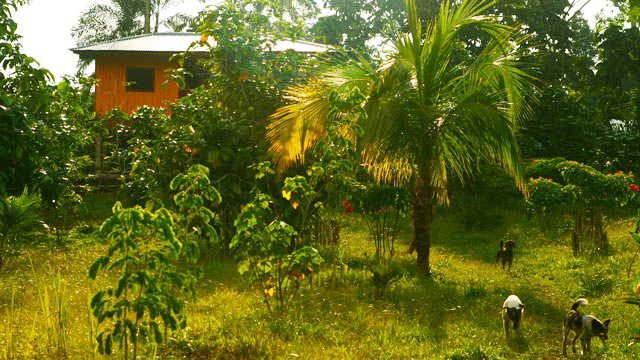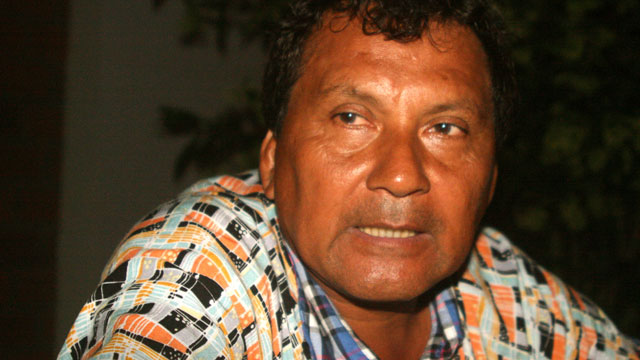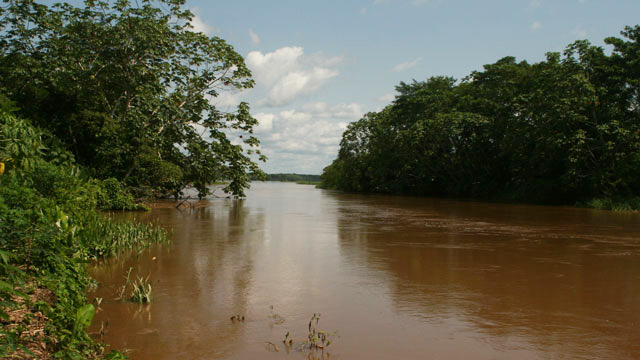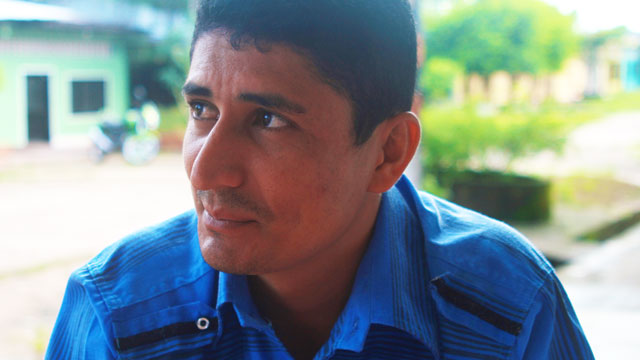The "Amazon Man" Wants to Save Colombia's Peasants
A Colombian activist lures peasants away from the drug trade and harmful crops
May 16, 2013— -- Inside the Colombian Amazon in a remote region next to the Peruvian border there are thousands of hectares of pasture. It used to be a rainforest, like much of this region known as El Putumayo. But this particular area was cut down in the '90s to grow coca leaf, the raw material for cocaine. Then U.S.-backed aerial fumigations took place, and the coca plantations became a big patch of grass.
Next to that big patch of grass, there is a small farm that grows all types of crops from camu-camu to borojó. It seems to be an idyllic spot in the Amazon countryside. But it wasn't always like that. "I inherited this land from my father," recalled Beyanira Yara, a 40-year-old indigenous farmer. "It was all jungle and I wanted to cultivate the land."
So she built a mud house and worked the land with no expertise or technique, which made her work neither efficient nor profitable.
 The modest cottage in which Bayanira Yara lives is surrounded by forest and Amazonian plants.
The modest cottage in which Bayanira Yara lives is surrounded by forest and Amazonian plants.
"Then the Amazon Man came to visit and saw that our farm was the more diverse one," Yara said. "He told us he would change our lifestyle," and he did.
Heraldo Vallejo, commonly known here as the Amazon Man, is a 56-year-old former government consultant who has dedicated his life to promoting sustainable agriculture in the Amazon rainforest.
With the help of Colombia's National System of Protected Areas, he converted Yara's farm into a sustainable and productive one. He taught her what to grow and how to build her own compost. He helped her install a vine system to grow fruit, he built her a stove to cook, and he covered her dirt floor house with a concrete one.
Vallejo is doing this because he wants to help local farmers to emerge from the harsh conditions that force them to grow coca leaf for a living. He also promotes sustainable agriculture because he opposes the solution that is most commonly offered to local farmers by the Colombian government, which is to grow large extensions of just one cash crop, like coca or African palm.

Heraldo Vallejo, aka "The Amazon Man," has devoted much of his life to the promotion of sustainable agriculture in the rainforest.
Large extensions of the same plants are not viable, according to Vallejo, because the plants end up fighting each other for the nutrients in the soil and eventually there are no nutrients left.
Vallejo, who was born in Putumayo, says that in the rainforest the only sustainable way to grow the land is through Polyculture – using multiple crops in the same area – since rainforest soil is poor in nutrients and the plants need to obtain them from other plants. "To achieve a successful sustainable agriculture we need to understand the nature of our soil," explained Vallejo. "If we are to grow a banana tree, we need to grow around it other plants that will provide it nutrients."
However, the government sees planting only specific cash crops as an opportunity for economic growth and foreign investment. In fact, the National Development Plan of President Juan Manuel Santos, calls for the planting of six million hectares of cash crops like African Palm, Rubber and soy in large extensions. If you put it together, this area of "monocrops" would be almost as large as West Virginia.
And the environmental risks of planting large extensions of one crop are widely known. According to the Food and Agricultural Organization (FAO), large extensions of the same crop are more vulnerable to any epidemic outbreak, more dependent on pesticides and they cause soil erosion.

A typical scene in Colombia's Putumayo region. This area of the country is mostly covered by rainforest.
The Amazon Man tried to warn the government about these scientific problems, but he has been largely ignored. That led him to quit his previous job in the regional environmental institute, where he used to work as a consultant. He found a new calling in a farmers' movement called the Tenacious Families.
"To be a member of a tenacious family you need to be eager to work hard", said Arnulfo Tusarma 32-year-old farmer from Putumayo, and president of Asojuntas – an organization that gathers eighty farmers' committees in the region. According to Tusarma, the Tenacious Families are trying to rebuild a regional identity.
Like thousands of farmers, Tusarma once worked in the coca plantations, which are essentially farms where only coca leaf is grown. He learned how to sow, harvest and process the coca leaf, which was then sold to locals who run cocaine labs. But Tusarna got tired. The coca leaf growers known as the "cocaleros" earn less than a dollar for a gram of coca paste, the white powder that serves at the base to produce cocaine.
Although this isn't much, it is still more profitable to grow the coca leaf than to produce regular food without the proper guidance and technique to make it efficient.
 Arnulfo Tusarma is 32-year-old farmer from Putumayo who used to plant coca for a living.
Arnulfo Tusarma is 32-year-old farmer from Putumayo who used to plant coca for a living.
"A cocalero lives in extreme poverty and never overcomes that situation," Tusarma said. "They work hard and risk themselves to enrich others while destroying their own natural resources."
There are still more than 3,000 families in Putumayo that live off coca production, and despite the U.S.-backed fumigations program, coca plantations have increased in the last couple of years as growers evade law enforcement officers by moving deeper into the jungle where they slash and burn forested areas to set up new coca plantations. It is estimated that there are more than 10,000 hectares of coca plantations in the region.
This is largely why the Amazon Man has partnered with this new group of farmers. Since 2006, they have been trying to garner government support for a sustainable agriculture proposal that focuses on producing food while preserving natural resources, and giving the peasants an alternative to the coca planting.
At the moment, the Ministry of Agriculture is evaluating the proposal. With a little bit of luck, the government's cooperation, the Amazon's Man guidance and the farmers' tenacity, a dream for this land may become a public policy.